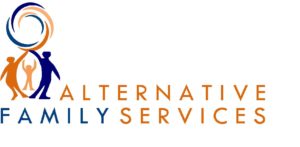Thinking for Change: Empowering Justice-Involved Youth and Adults Through Cognitive Behavioral Change
The journey toward rehabilitation for justice-involved youth and adults is complex, but Thinking for Change (T4C) offers a transformative approach that focuses on cognitive restructuring, social skills training, and problem-solving techniques. Unlike punitive measures that address only behaviors, T4C helps participants reshape their thinking patterns, develop emotional regulation, and make healthier decisions—ultimately reducing recidivism and fostering long-term success.
At Alternative Family Services (AFS), we implement Thinking for Change as one of many evidence-based practices (EBPs) to support individuals navigating the justice system. By equipping them with tools for self-awareness, problem-solving, and emotional resilience, we help set them on a path toward stability and success.
What is Thinking for Change (T4C)?
Developed by the National Institute of Corrections (NIC), T4C is a structured cognitive-behavioral program designed to help justice-involved individuals recognize and shift negative thought patterns. Through cognitive restructuring, skill-building, and emotional regulation techniques, participants gain the tools to make more thoughtful, informed decisions in their daily lives.
Grounded in cognitive-behavioral therapy (CBT), T4C emphasizes the connection between thoughts, emotions, and actions, helping individuals break free from harmful cycles and develop healthier coping strategies. The program is tailored to meet the needs of both youth and adults, ensuring that interventions are age-appropriate and impactful.
Key Elements of the Program
- Cognitive Restructuring: Participants learn to identify and challenge distorted thinking patterns, replacing harmful thoughts with rational, constructive ones. This helps them avoid impulsive, high-risk behaviors.
- Social Skills Training: Effective communication, conflict resolution, and active listening skills are taught to improve interpersonal relationships and build positive connections.
- Problem-Solving Techniques: Many justice-involved individuals struggle with impulse control. T4C helps them evaluate consequences, weigh options, and choose productive responses to challenges.
- Emotional Regulation and Self-Control: Managing anger, frustration, and anxiety is critical for preventing conflicts. Participants develop healthy coping mechanisms to handle stress and avoid violent or reckless reactions.
- Relapse Prevention Strategies: Participants learn to identify triggers for negative behaviors and implement proactive strategies to stay on a positive path.
The Impact of Thinking for Change
T4C has been shown to make a significant difference in the lives of justice-involved youth and adults. Some of the key benefits include:
- Improved Decision-Making: Participants develop critical thinking skills that help them avoid high-risk situations.
- Increased Self-Esteem and Personal Growth: As individuals gain control over their thoughts and behaviors, they build confidence and resilience.
- Stronger Community and Family Ties: Social skills training and emotional regulation allow participants to repair relationships and build positive support systems.
- Reduced Recidivism: By addressing the root causes of criminal behavior, T4C helps individuals break free from cycles of reoffending.
One success story highlights a young participant who struggled with impulsiveness and low self-esteem. Through T4C, he gained confidence, learned to manage frustration, and repaired relationships with family members. Stories like these demonstrate how a shift in mindset can create lifelong changes.
Commitment to Evidence-Based Practices
At Alternative Family Services, we are committed to utilizing evidence-based practices that produce real, measurable outcomes. In addition to Thinking for Change, we incorporate Motivational Interviewing, the Safe and Sound Protocol, and other proven interventions to support youth and families.
AFS helps individuals move beyond their past and build promising futures by focusing on empowerment, skill-building, and emotional resilience.
For more information about our evidence-based approaches, visit:
🔗 https://www.afs4kids.org/blog/evidence-based-practices-a-pathway-to-better-outcomes-for-children-teens-and-families/

The journey toward rehabilitation for justice-involved youth and adults is complex, but Thinking for Change (T4C) offers a transformative approach that focuses on cognitive restructuring, social skills training, and problem-solving techniques.
Final Thoughts
Whether working with youth or adults, Thinking for Change reinforces a powerful message: transformation is possible. By reframing thoughts, developing healthier habits, and strengthening decision-making skills, participants gain the tools to build stable, successful lives.
At AFS, we believe everyone deserves a chance to change their future—and T4C provides the path forward.
